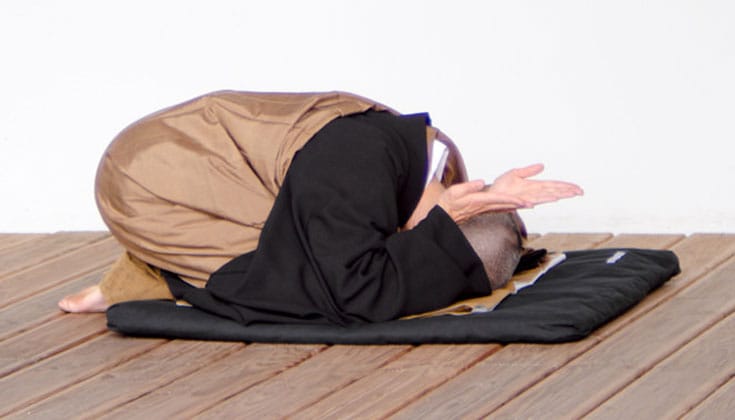Some Buddhists bow more than others; I happen to bow a lot. It’s a central part of practice, a way to embody respect, humility and love — a way of saying “yes” — even as we face the mysteries of existence. The Zen teacher Dogen said that “As long as there is true bowing, the Way of the Buddha will not deteriorate.”
Bowing before people is a way to embody the fact that we are interconnected and reminds me to see the face of the Buddha in those that I serve.
Every morning before I do anything else, and every evening before I retire, I bow before the Butsudan, or altar. It is a way to take refuge and remind myself that no matter how well or how badly the day goes or has gone, the ground of my being in this transient life is a source of compassion, creativity, and connection. It reminds me that my self-worth is not based on what happens or doesn’t happen, what I do or don’t do, what I have or don’t have.
Bowing is a mindful movement that brings physicality into our practice. In my ministry, bowing before people is a way to embody the fact that we are interconnected and reminds me to see the face of the Buddha in those that I serve, moving me beyond the boundaries of my personal limitations. I also bow before the grave of my beloved cat, the tree in my yard and the pond that reflects the moon at night. I love to look at the stars and bow before the spaciousness of the sky, reminding me of the true nature of my mind.

